

Speaker biographies
Donna Austin

Donna joined ICANN in February 2005 in the ccNSO Policy Support role, which she held until April 2007. She has more recently taken on the role of Manager - Governmental Relations, which includes being the GAC Liaison. She has also supported the Nominating Committee in 2005, 2006, and again in 2007 and is the project manager for Accountability Framework discussions with ccTLD managers.
Prior to joining ICANN, Donna had a long career in the Australian Commonwealth Public Service, undertaking a range of policy and program positions, including managing two grants programs in the Broadcasting Division of the Department of Communications, Information Technology and the Arts. In 2001/02, Donna represented the Australian Government as the Coordinator of the GAC.
Donna is an Australian national with a Bachelor of Arts in Office Management and has also undertaken post graduate studies in public policy.
Robert Bailey

Robert Bailey is a Systems Administrator (Desktop Support) for APNIC.
Randy Bush
Randy has spent more than 40 years in computing. Though he started out in languages and compilers, he has spent the last few decades in Internet operations, architecture, and research. He is currently a principal scientist at Internet Initiative Japan, and also consults to various network players.
He has been involved in technology transfer to the developing economies for twenty years, was on the founding Board of ARIN, is on the Steering Committee of NANOG, spent six years as the Operations Director of the IETF, and has served on various ACM, IEEE, and ISO committees.
He is currently Chair of the APNIC Fees WG and Co-chair of the Routing SIG. He has been a long term attendee of the RIR meetings of all of the other regions, and is familiar with their processes and policies. He was the co-developer, with Anne Lord, of APNIC's policy development process.
Che-Hoo Cheng
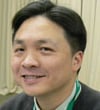
Che-Hoo is a well-known Internet pioneer in Hong Kong. At The Chinese University of Hong Kong (CUHK), he helped to set up the first Internet link in Hong Kong in 1991, to set up the .hk domain name registration service in 1993/94, and he set up the Hong Kong Internet Exchange (HKIX) in 1995. He was also in charge of the set-up and operations of the campus network for the whole university and worked for the university for more than 15 years.
Che-Hoo has also worked at Level 3 as Senior Director, Global IP Services, Asia and at the Hong Kong Internet Registration Corporation (HKIRC) as CEO. Che-Hoo was a key figure in getting ICANN to recognise the .ASIA domain name. Che-Hoo holds / has held key positions at the Asia Pacific Network Information Centre (APNIC), the Hong Kong Internet Service Providers Association (HKISPA), the Hong Kong Information Technology Federation (HKITF), the DotAsia Organisation, and the Internet Society Hong Kong Chapter (ISOC-HK).
Sylvia Cadena

Sylvia, a Colombian native, has been supporting different organizations, initiatives, and individuals to take advantage of information and communication technologies and use them strategically for their development objectives since 1993 when she joined the United Nations Volunteers Program. After 18 months working at the Southlinks Project, she served at Colnodo (a non-profit ISP and APC member in Colombia), as a webmaster and special projects coordinator. Sylvia was hired in 2000 as the Information Officer for the Tropical Whitefly IPM Project (a global initiative of the CGIAR centres on integrated pest management) where she developed the information platform for the global team and their on-line research activities. In July 2003, she joined the Institute for Connectivity in the Americas and the International Development Research Centre regional office in Montevideo, Uruguay where she was awarded for her work with the "Annual Award for Young Professionals". From 2004 to early 2008, she worked as a consultant supporting community wireless networking in Latin America, by coordinating an information platform called WiLAC, which supports the development and translation of technical training materials. She was also the coordinator of the regional wireless training and applied research project called TRICALCAR. Sylvia joined ISIF (a joint small grants program from APNIC, IDRC and ISOC) as a program officer in April 2008.
Marilyn Cade

Marilyn Cade is now an international consultant, providing strategy and representation in Internet governance, Internet, cyber security and global IP networking services and related policy issues. Earlier she led AT&T's global policy and advocacy on global Internet and e-commerce issues.
Cade's focus is working at the nexus of technology and global public policy in relation to the Internet and its changing role and uses. She continues her focus on the importance of private sector leadership for the global Internet and IP enabled services and how industry needs to proactively address the growing risk of intergovernmental regulation and oversight of the Internet.
Ms Cade is the chair of the Global Public Policy Committee of ITAA; an active contributor in WITSA's Policy Committee; VoIP/IP Telephony rapporteur at ITU Study Group 3; and Founder/Chair, Positively Broadband Campaign. In early 2008, Cade was appointed to support AT&T's participation in the ITU Secretary General's High Level Expert Group on Cyber Security. Cade is a member of ICANN's President's Strategy Committee. During her career at AT&T, she led in the restructuring and creation of numerous industry associations, ad hoc working groups and industry self governance initiatives, including the Internet Summit, the Ad Hoc Copyright Coalition, the Online Privacy Alliance and GetNetWise.
Fred Christopher
Fred Christopher is manager of the Pacific Islands Telecommunications Association and is currently working with communication providers, carriers, regulators from Pacific Islands in representing small islands issues, interests and development in the field of communications.
Fred has been in the telecommunication industry for over 20 years, in Fiji and one year in the Federated States of Micronesia.
Keith Davidson

Keith Davidson is Executive Director of InternetNZ, and former President of InternetNZ. He has a long history in the newspaper world, and more recently was owner/manager of a regional ISP in New Zealand.
InternetNZ is a not-for-profit organization that holds the delegation for the .nz domain name space. InternetNZ's vision is "an open and uncaptureable Internet for New Zealand".
Much of its work relates to the evolution of public policy and advocacy to promote and protect the Internet. InternetNZ is committed to bottom-up, consensus-based decision making in an open and transparent environment and has established working relationships with national and international stakeholder organizations.
Mark Dranse

Mark Dranse joined the RIPE NCC as manager of the newly formed Information Services team at the start of January 2007. He is responsible for the development and support of the RIPE NCC's Test Traffic Measurement (TTM), Routing Information Service (RIS), DNS Monitoring (DNSmon) and Hostcount services.
For 8 years prior to joining the RIPE NCC, Mark held various technical managerial roles with UK based RIPE member Demon Internet (THUS PLC) where he was responsible for domain names, IP addressing, and internet circuit provisioning.
Raúl Echeberría
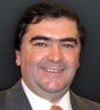
Raúl Echeberría is member of the Uruguayan Government Ad Hoc Advisory Council in Electronic Commerce and a Member of the Uruguayan Government Ad Hoc Advisory Council in Internet 2 projects. He has authored many published articles covering topics related to Internet issues. He is a regular speaker at international forums, including regional Internet registry meetings in all of the regions (ARIN, APNIC, RIPE NCC, LACNIC, and AFRINIC), WSIS regional and global meetings, and the Internet Society Workshop at WSIS 2003. He was a member of the Name Council of ICANN and a founding member of the Non Commercial Domain Name Holders Constituency of ICANN, as well as a co-writer of the first Charter. Raul holds a Masters degree in Information Technologies from the Universitario Autónomo del Sur, Uruguay, and completed post-graduate studies in Top Level Business Management at the Unversidad de Montevideo, Uruguay.
Neil Fenemor

Neil Fenemor is a senior engineer at FX Networks, a pioneering commercial ISP and backbone provider in New Zealand. He leads the architecture and operational aspects of the ISP arm of FX Networks. He has had several years experience with IPv6, and over a decade of design and operational experience in the ISP industry.
Miwa Fujii

Miwa has served as an APNIC trainer since 2002. During this period she has provided Internet resource management education and training to many people, countries, and regions in the Asia Pacific. Miwa has developed and delivered, along with her colleagues, training programs including IPv6, Internet security, and the Internet Routing Registry.
Before joining the Asia Pacific Network Information Centre (APNIC), Miwa worked at IBM Australia as an operations manager, then as a leader and trainer for the IBM Asia Pacific Technical Support Centre. Previously, she served as a LAN administrator for various organizations, including Jardine Fleming Securities and Warburg Investment Management. Miwa was educated in Japan and Australia and holds a master's degree in eCommerce.
Geoff Huston

Geoff Huston is the Chief Scientist at APNIC, where he undertakes research on topics associated with Internet infrastructure, IP technologies and address distribution policies. From 1995 to 2005 Geoff was the Chief Internet Scientist at Telstra, where he provided a leading role in the construction and further development of Telstra's Internet service offerings, both in Australia and as part of Telstra's global operations. Prior to Telstra, Mr Huston worked for the Australian National University, where he led the initial construction of the Internet in Australia in the late 1980s as the Technical Manager of the Australian Academic and Research Network.
He has authored a number of books dealing with IP technology, as well as numerous papers and columns. He was a member of the Internet Architecture Board from 1999 until 2005 and served as its Executive Director from 2001 to 2005. He is an active member of the Internet Engineering Task Force, where he currently chairs two Working Groups. He served on the Board of Trustees of the Internet Society from 1992 until 2001 and served a term as Chair of the Board in 1999. He has served on the Board of the Public Internet Registry and also on the Executive Council of APNIC. He chaired the Internet Engineering and Planning Group from 1992 until 2005.
Don Hollander
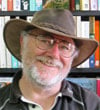
Don Hollander has been active in the ICT communities for many years. He currently wears many hats, including the Chair of the 2020 Communications Trust, the General Manager for the Asia Pacific Top Level Domain Association (APTLD), the Global Coordinator for the Pacific Internet Partnership, a member of the New Zealand Digital Development Council and, his favourite, a partner in a small second-hand book store which combines virtual and physical operations. He has also recently been the Regional Coordinator for the Global Knowledge Partnership (GKP) in the Pacific.
Don has lived in New Zealand, Samoa, Panama, Peru, and both coasts of the United States.
Izumi Okutani

Izumi Okutani performs the role of Policy Liason at JPNIC. She is in charge of outreach and training activities for Policy Development in Japan as well as having been involved in co-ordination between JP and AP communities since 2000. She has served as NIR SIG Chair since 2005.
Kanchana Kanchanasut

Kanchana Kanchanasut is a Professor in Computer Science and a Director of Internet Education and Research Laboratory at the Asian Institute of Technology, Thailand. Her current research interest includes challenged and emergency networks, digital media channels and tele-education. She is an executive director of the ASEAN Virtual Institute of Science and Technology and was in charge of the Asia-Pacific Advanced Network (APAN) training committee.
She did her PhD in Computer Science from the University of Melbourne (Australia) under the University Postgraduate Scholarship and her undergraduates from the University of Queensland (Australia) under the Colombo Plan Scholarship.
Erik Kline

Erik Kline is a Senior Systems Administrator in Santa Monica, CA. He has worked for Google since 2004 and has been architecting networks and writing software since 1993.
Having started work on IPv6 porting and deployment in 2005, as a <20% project, he transitioned to a 100% "IPv6 guy" in October of 2007. He has contributed as a software developer to the launch of ipv6.google.com and subsequent production IPv6 software efforts. Additionally, he is a technical lead for the corporate deployment of IPv6.
Erik is also an open source contributor, IETF participant, and, prior to discovering networking and software, was an Astronautical Engineer from MIT and NASA Ames Research Center (Moffett Field).
Matt Lepinski

Matt Lepinski received a Ph.D. in computer science from MIT in 2006; his graduate research having focused on the design of secure communications protocols. Dr. Lepinski currently works as a research scientist at BBN Technologies in Cambridge, Massachusetts. His primary interests are the use of IP networks for emergency communications; and incrementally deployable improvements to the security of interdomain routing. Dr. Lepinski is an active participant in IETF standardization efforts in the areas of emergency communications and routing secure; and he works with members of others standards bodies in support of global standards alignment for emergency communications.
Martin Levy

Martin Levy has been involved in the TCP/IP world since the publication of those first TCP/IP RFCs. Born and educated in England, Martin moved to the United States to work as a software developer at the prestigious Bell Labs. It was at Bell Labs that he ran their first TCP/IP network-enabled UNIX computers. After seven years in New Jersey, Martin moved to California and joined the Silicon Valley entrepreneurial-life to continue his focus on networking software and systems. When the ISP industry started to take root in the early 1990s, it was a natural industry for Martin to move into. Since then, Martin has been building networks in California, the greater US, Europe, and Latin America. Since joining Hurricane Electric in early 2008, Martin has taken on the role of significantly expanding the Hurricane Electric IPv6 commercial offerings, including its expansion into Asia. Martin Levy is a regular speaker at various worldwide Internet-related conferences.
Akinori Maemura
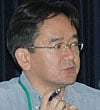
Akinori has been in the Internet technical field for 15 years. He was involved in various Internet activities, such as JANOG and JPNIC, when he worked for NEC Corporation as a network engineer and then for France Telecom Group as a product manager and a researcher. He is now General Manager for JPNIC's IP Department since 2007.
Akinori has been an APNIC EC member since 2000 and Chair of the EC since 2003.
Frank March

Dr Frank March is a Senior Specialist Advisor in the Digital Development Group of the Ministry of Economic Development (MED), Wellington, New Zealand. The group is responsible to the Minister for Communications and Information Technology for developing and coordinating work on New Zealand's Digital Strategy.
For many years he has been involved with developing Internet policy and advising on a wide range of technical and other Internet-related issues. He is the New Zealand delegate to the ICANN Governmental Advisory Committee. He is also working on broadband development strategies for New Zealand, in particular community-based or partnered open access urban fibre networks and rural broadband initiatives.
In 2005 he was a member of the Secretariat of the Working Group on Internet Governance, on leave from the MED. In a private capacity, he is vice-president of Internet New Zealand, which is a private non-profit body responsible, among other things, for managing the .nz top-level domain.
Matsuzaki Yoshinobu

Yoshinobu Matsuzaki is a Senior Engineer at Internet Initiative Japan Inc.(IIJ/AS2497), a pioneering commercial ISP in Japan. He has a decade of experience in network operation as part of the IIJ backbone network team. His areas of expertise include network design, network operation, network security, and DNS. He has given numerous talks at JANOG, NANOG, RIPE, and APNIC meetings, as well as other workshops.
Merike Kaeo

Merike Kaeo is Chief Network Security Architect at Double Shot Security. She is the author of Designing Network Security, published by Cisco Press, which has been published in eight languages and is being used as a curriculum textbook in a variety of network security courses. Merike was a lead member of the first Cisco security initiative, has acted as a technical advisor for numerous security start-up companies, and has been an instructor and speaker at a variety of global security-related conferences.
Merike is a member of the IEEE and was the co-chair of the IETF IPPM (IP Performance Metrics) working group from 2000-2003. Prior to founding her own company, Merike was employed by Cisco Systems, Inc., where she worked primarily on technical issues relating to router performance, network routing protocols, network design, and network security. Merike started her networking and information security career in 1988 at the National Institute of Health, designing and implementing the original FDDI backbone for the NIH campus using Cisco routers.
Jonny Martin

Jonny Martin has been actively involved with the New Zealand Internet since 1998, working in various technical roles starting at Telecom, then Alcatel, CityLink, and currently FX Networks. Later this year, Jonny will move to Berkeley, California to work for Packet Clearing House.
Jonny has experience in a number of fields, particularly in the design and building of Telco scale broadband networks (DSL, Ethernet, and optical), and VoIP/ENUM, and related fields.
George Michaelson

In his career in the United Kingdom and Australia, George Michaelson has pursued academic and government research in computer science, networking, and systems administration, including technical group and systems management.
He is currently the senior research and development specialist at APNIC. George has recently been working on long-baseline DNS statistics, services log audit and analysis, and designing the Resource Certification framework. George is a member of the BCS (British Computer Society), and a founder member of the Australian chapter of the Internet Society.
Tulika Pandey
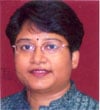
Ms Tulika Pandey is an Electronics and Telecommunications Engineer. She has been with the Government of India since 1992 and holds the position of Director with the Department of Information Technology, Ministry of Communications & Information Technology, Government of India. She has been involved in implementation strategy and action plan formulations for wider reach of ICT facilitated benefits; Integration of appropriate technology interfaces between human and cyber world; Steering of Research and Development projects for development of contextual ICT technology, tool, applications and content. She is has traversed through the path of Microelectronics development, E-Learning, Technology Development for Indian Languages, Digital Libraries and now E-Infrastructure and Internet Governance in her stint with the Government of India. Ms Tulika Pandey is a member of the IEEE Women in Engineering Society. She has conducted technical training programmes and entrepreneurial workshops for ubiquitous ICT interventions in human life for inclusion and contribution of women in the field of Information and Communication Technologies. She has presented the concerns of India and government in particular in the International and National forums of Internet Governance and Women in ICT.
The Department of Information Technology is presently coordinating the hosting of the 3rd Internet Governance Forum (IGF 2008) from December 3 - 6, 2008 at Hyderabad in India. Ms Tulika Pandey is one of the key officials involved in coordinating India's efforts in hosting IGF 2008.
Sam Sargeant

Sam started working on the Internet in New Zealand during the mid-1990s. Since this time he has worked for a router manufacturer, for small and large ISPs, and as a contract software developer and network integrator. In 2002 he co-founded OneSquared, a hosting service provider and has recently been involved in DNS operations for the New Zealand government. In 2006 he was elected as a councillor of InternetNZ, the .nz ccTLD manager.
Rajnesh Singh

Rajnesh Singh joined the Internet Society in 2008 as Regional Manager for South and Southeast Asia.
Before joining ISOC, Rajnesh held executive management roles, primarily in the technology sector, and has consulted on communications and power infrastructure, project management, and business strategy for medium to large companies and organizations in the Asia Pacific region. He has also held advisory roles across multiple sectors, ranging from governmental organizations to sporting organizations and the private sector.
Rajnesh has worked extensively with the Asia Pacific Internet community, and has held several leadership roles, including Chair of ICANN's Asia Pacific Regional At-Large Organisation (APRALO), Chair of the Pacific Islands Chapter of ISOC (PICISOC), and the IPv6 Forum. He has worked extensively on ICT policy, training, and capacity building in the region and has been active in the Internet Governance Forum (IGF) since its inaugural meeting. His current areas of interest are ICT policy in developing and emerging economies, Internet evolution, and effective business strategies for developing markets. Rajnesh speaks multiple languages, including English, Hindi, Urdu, Punjabi, Fijian, and some French.
Elly Tawhai

For the past seven years Elly has been working at APNIC as an Internet Resource Analyst. She also co-ordinates APNIC's liaison activities within the Pacific, New Zealand and Australia.
Paul Twomey

Dr Paul Twomey became President/CEO of ICANN on 27 March 2003. Paul's background lends a balance of public/private experience to leading ICANN, including numerous leadership positions in commercial enterprises, government, and in chairing ICANN's Government Advisory Committee.
Most recently, before joining ICANN, he was the founder of Argo P@cific, a high-level international advisory and investment firm that assists both Fortune 500 companies and start-up companies to build global Internet and technology businesses and strategic alliances.
Prior to that, Paul was the founding Chief Executive Officer of the National Office for the Information Economy (NOIE) and the Australian federal government's Special Adviser for the Information Economy and Technology. Established in 1997, NOIE is Australia's leading Commonwealth agency for information economy issues. In his position as Special Adviser, Paul was charged with providing strategic advice to the government on developing its information economy and technology priorities and strategies, including a National Strategy for the Information Economy. He was also Australia's representative at international forums, such as the World Trade Organisation, the OECD and APEC, to ensure that Australia's interests were promoted during the current formation of the rules and regulations of the international information economy.
During this time, Paul was closely involved with ICANN, serving as Chair of the Governmental Advisory Committee (GAC) for three years ending November 2002. In recognition of his significant role in ICANN and his international influence on Internet and e-commerce issues with foreign governments, the Australian government appointed him its Special Representative for the Internet and ICANN.
Prior to his appointment as CEO of NOIE, Paul was Executive General Manager, Europe, of Austrade - the Australian Trade Commission. As the leader of Austrade's Global Information Technology and Telecommunications Network, he assisted Australia's IT&T firms to market their products and services to key European, American, and Asian markets.
From 1994 to 1997, Paul was the Executive General Manager of Strategic Development for Austrade and was responsible for the development of corporate strategy, business process, and operational management within Austrade. Paul was the author of the influential study: Austrade scenarios for the Australian trading environment. This study, released early in 1997, outlined implications for Australian exports of an East Asian economic collapse. The study was influential to Australian government policy reactions to the Asian financial crisis in late 1997-98.
Prior to this, Paul was a consultant with global management consultancy McKinsey & Company. In this role he advised major corporations primarily from the telecommunications financial service and tourism sectors in Australia, the United States, Japan, and Hong Kong.
Widely published in academic and popular journals, Paul has contributed to books on industry policy, foreign and defence policy, and development issues. He holds a Bachelor of Arts (Hons) from the University of Queensland, a Master of Arts (Political Science and International Relations) from Pennsylvania State University and a PhD in International Relations from the University of Cambridge.
Tomoya Yoshida
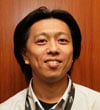
Tomoya Yoshida is a ISP backbone design engineer of OCN at NTT Communications, the biggest ISP in Japan. After graduating from the department of information engineering at his university, he started his career with Internet routing at NTT Corporation, currently NTT Communications Corporation. He was in charge of Internet backbone operation and peering coordination at OCN; then, one year later he launched the IRR (Internet Routing Registry) service at NTT in 1999 (currently merged to the Verio Routing Registry). Since 2000, he has added new focus to the development of the whole Internet, especially the areas of routing and IP address management, in addition to various other operational activities.
He was one of the start-up members of the JPNIC IRR Planning Team in 2001. In addition, he contributed to the launch of the APNIC IRR as well as the launch of the production service of the JPNIC IRR. Currently, he chairs the team. He has also chaired the JPNIC IP Address Committee since last year, so he contributes both to the routing community and address community. He has been the core member of the NOC team of the Interop Tokyo since 2000.
In addition to contributing to routing and Internet resource management areas, he has been contributing to the routing security area by serving as the nsp-security-jp moderator in Japan since 2004. He is also the founder of the IRS (Inter-domain Routing Security) Workshop, which was created to share inter-domain security-related information between ISPs.
Gaurab Raj Upadhaya

Gaurab Raj Upadhaya is currently employed as Internet Economics Analyst/Staff Engineer at Packet Clearing House, a research non-profit based in Berkeley, California. Gaurab's primary work is in Internet backbone operations, analysing peering relationships between operators and roles of Internet Exchange Points in different parts of Asia. Much of the work involves training ISPs in developing countries about best practices on network operations. He also runs the PCH INOC-DBA hotline phone system for service providers. He initiated the Nepal Internet Exchange (npIX) and currently serves as its voluntary CEO.
Save Vocea
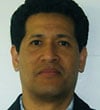
Save Vocea joined ICANN in October 2006 to promote ICANN and foster relations in the Oceania region by engaging with various Internet stakeholder groups through information sharing, regional representation, and participation as they relate to ICANN's respective responsibilities. Prior to joining ICANN, Save dually served as Policy Development Manager and Liaison (Pacific) at the Asia Pacific Network Information Centre (APNIC) and was also the Manager for the Pacific Islands Telecommunications Association (PITA).
Nathan Ward

Nathan Ward is a New Zealand based Internet engineering consultant for Braintrust Ltd, and has been active in the New Zealand and International Internet communities for a number of years. He has worked as an architect and engineer for Telcos, ISPs, content providers and vendors. When not doing the above, he spends his time stirring up trouble in things that take his interest, lately in the IPv6 and IPv4 run-out arenas.
David Woodgate

David Woodgate has had a significant role in the engineering of the Internet in Australia since 1990. During the early 1990s, David worked in CSIRO, engineering its national IP backbone and advising on the development of Internet strategy. He was also actively involved in the Australian Internet community, working in the Australian Engineering Working Group and other bodies.
He joined Telstra in 1995, and at various times since then he has been responsible for the network engineering, construction, operations and planning of Telstra's national and international Internet backbone and associated products. He has also had roles in the architecture and planning of Telstra's core data and broadband networks. David regularly attended IETF meetings between 1993-1999, and he contributed to the development of the Routing Policy Specification Language, for which he is acknowledged in RFC 2280 and RFC 2622. David is currently the General Manager for IP Address Planning in Telstra.
Paul Wilson

Paul Wilson was appointed as Director General of APNIC in August 1998, bringing with him some 10 years of technical and business experience in the Internet industry.
In 1989, Paul became a founding staff member as Technical Director, and later (in 1992) as Chief Executive Officer at Pegasus Networks, the first private ISP to be established in Australia. During a period of 8 years with Pegasus, he oversaw the successful growth of the company as a renowned service provider in Australia. During this time he also worked on Internet projects in many developing countries and as a consultant to the United Nations and other international agencies.
Since 1994, Paul has worked with the International Development Research Centre (IDRC) on their Pan-Asia Networking (PAN) Programme, in support of PAN projects in Mongolia, Vietnam, Cambodia, Maldives, Nepal, Bhutan, PNG, and China. As a primary consultant on Internet projects, he helped to introduce Internet services for the first time in several of these countries.
Since Paul joined APNIC in 1998, the APNIC Secretariat has grown from 6 to more than 60 staff members, and now serves over 1,600 of the largest ISPs in the Asia Pacific region.
In 2000, Paul was inducted into the Australian Internet Hall of Fame, in recognition of his contributions to the development of the Internet.
Xing Li
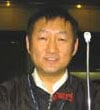
Xing Li received his BSc degree in radio electronics from Tsinghua University, Beijing in 1982, and his M.S. and Ph.D. degrees in electrical engineering from Drexel University, USA in 1985 and 1989, respectively. He is currently a Professor of the Electronic Engineering Department at Tsinghua University, Beijing, China. His research activities and interests include statistical signal processing, multimedia communication and compute networks. He has published more than 200 papers in his research areas.
He is deputy director of China Education and Research Network (CERNET) Center, working on the design and operation of the CERNET and China Next Generation Internet (CNGI-CERNET2) projects. He also the project director of TEIN2 NOC. He is co-Chair of CCIRN. He was a member of Communication Expert Committee of the China National '863' High Technology Project. He is formal chairman of Asia Pacific Networking Group (APNG) and a formal member of executive council of APNIC.
Key info
| Venues: | |
|---|---|
|
|
| Dates: | 25-29 August |
| Email: | meetings@apnic.net |
| Attendees: | Registration list |
More information about APNIC and its role in regional and global Internet communities
